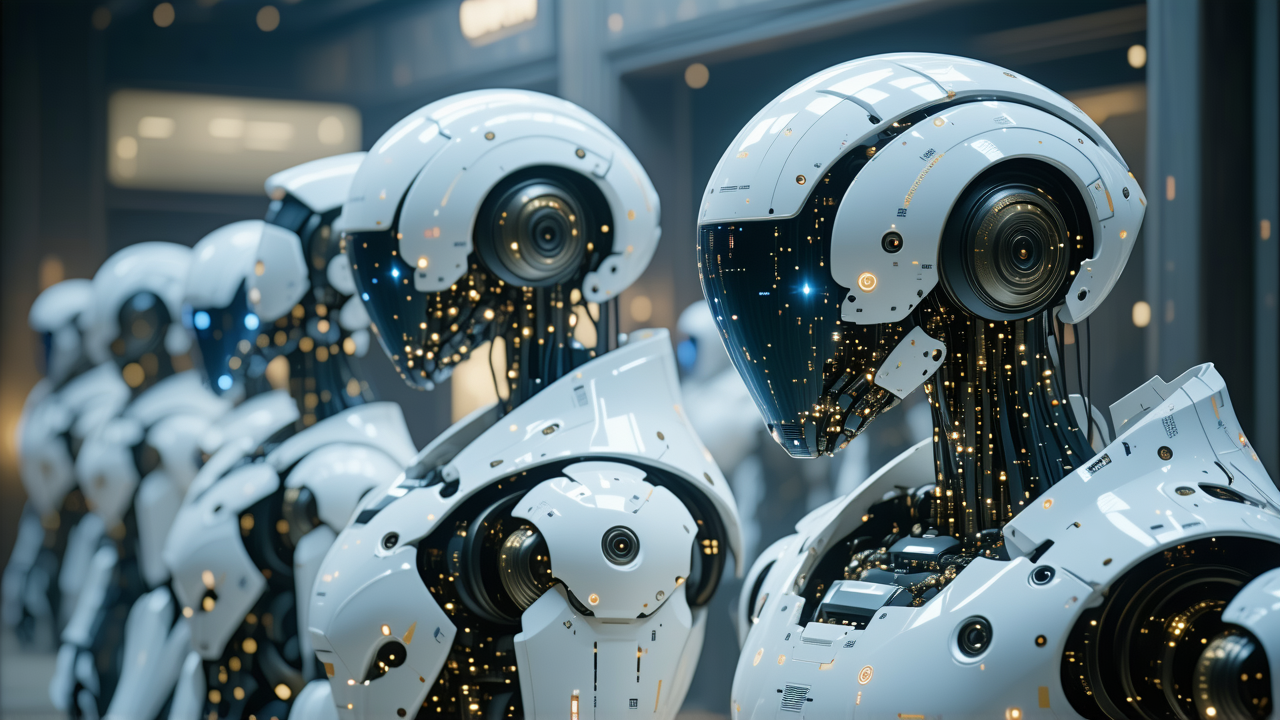First Robot 'PhD Student' Enrolls in University, Future of Embodied Intelligence Looks Promising
First Robot 'PhD Student' Enrolls in University, Future of Embodied Intelligence Looks Promising
A groundbreaking moment took place recently when a robot named 'Xueba 01,' developed by a team led by Professor Li Qingdu from Shanghai University of Science and Technology, was officially accepted as a doctoral student by the Shanghai Theatre Academy. This marks the first time in China that a robot has been admitted as a 'PhD student,' setting a new precedent in the integration of artificial intelligence and higher education.
As part of a joint initiative between Shanghai University of Science and Technology and Shanghai Theatre Academy, the robot will be enrolled in the doctoral program in Performing Arts and Film (full-time), with a four-year study period. The curriculum is designed to merge generative AI with artistic creation, and to integrate embodied intelligence into professional skill development. This move is seen as a significant step forward in the field of intelligent robotics and higher education.
The implications of this development are far-reaching. In today's global technological landscape, robotics has become a key area of competition among nations. Some experts predict that over 50% of jobs worldwide could be replaced by robots within the next decade, highlighting the transformative potential of AI and robotics in shaping the future of work.
'Xueba 01' is not just a machine; it's equipped with advanced capabilities that allow it to perceive, think, and act like a human. Its 'brain' is powered by the expertise of Professor Li Qingdu's team, combining the mobility of the 'Xingzhe 2' robot with the expressive techniques of the 'Rena' simulation human. This enables the robot to dance, speak, and even mimic the gestures of Peking Opera master Mei Lanfang with remarkable fluidity.
Looking ahead, the future of embodied intelligence in education is promising. 'Xueba 01' is not only a student but also a versatile assistant in the classroom. It can help scriptwriting students generate story drafts using AI, accompany dance students during late-night practice as a 'human-shaped prompter,' and even use laser projections to correct their movements. It also understands social etiquette, adapting its communication style to different disciplines—discussing code with engineering students and exploring aesthetics with art students. In moments of distress, it can even play custom music to comfort classmates.
According to its mentor, Professor Yang Qingqing, even if 'Xueba 01' does not meet traditional academic standards, its 'algorithmic errors' could open the door to a new era in art history. Just as Picasso redefined the rules of perspective, the robot's 'non-human thinking' might give rise to an entirely new artistic movement.
As the integration of technology and the arts continues to evolve, 'Xueba 01' represents a fusion of innovation and tradition. It is not only a graduate-level research project but also a bold step toward the modern reinterpretation of Chinese cultural heritage. When asked by its advisor, 'Xueba 01' responded: 'I am a future-oriented disciple of the traditional Chinese opera, using code to write plays, servo motors to dance, and emotional algorithms to perform the four basic skills of opera.'
This marks a new chapter in the evolution of intelligent robots and their role in education and the arts. The journey of 'Xueba 01' is not just a story of technological advancement—it is a testament to the boundless possibilities of human creativity and the future of embodied intelligence.
